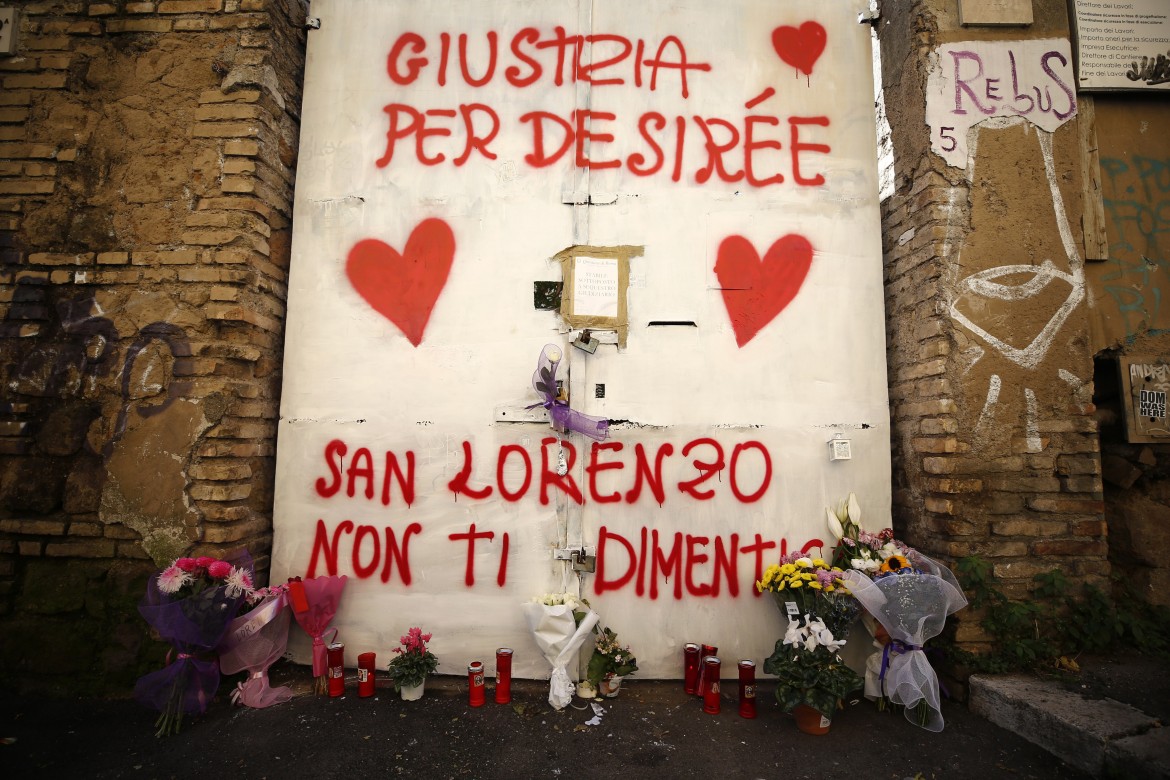Analysis
Salvini finds an ally against refugee settlements: the mayor of Rome
Rome Mayor Virginia Raggi has started to come around to Interior Minister Matteo Salvini's plan to demolish buildings currently occupied by refugees. Salvini's party recently launched a campaign for mayor.

Interior Minister Matteo Salvini is revving up the bulldozers, exploiting the public outrage at the death of Desirée Mariottini, a 16-year-old girl from a town near Rome who was drugged and gang-raped (the police have arrested two suspects so far, both Senegalese immigrants).
Salvini, leader of the far-right Lega party, is seizing on this tragedy as a pretext to launch his new campaign of forced evictions. He had repeatedly promised to tear down refugee squatter dwellings in the past, but the plans have previously sputtered in the face of objective difficulties and skepticism by some in the team of Roman Mayor Virginia Raggi, a member of the 5 Star Movement party.
The relationship between the Interior Minister and Raggi has gone through several ups and downs. They have joined together in various agreements and alliances under the aegis of the government deal between the Lega and the M5S. However, some months ago Salvini launched the Lega’s own campaign for the coming administrative elections in Rome, so that the current situation in the capital is that of a barely disguised underground tug-of-war between the two parties.
It is no coincidence that Deputy Prime Minister Luigi Di Maio of M5S has announced a decree to confer special powers to the mayor of Rome, which on matters of public safety will impinge on the powers of the Interior Minister and Lega leader. Turin, the other major Italian city under 5 Star Movement rule, offers a precedent: a few days ago, a majority on the city council, representing an unprecedented alliance between the M5S and the Democratic Party, introduced a proposal to alleviate the most repressive effects of Salvini’s signature security decree.
On Wednesday morning, Raggi and Salvini met at a session of the Committee for Public Order, together with the attorney general of Rome, Giuseppe Pignatone. The committee compiled an annotated list of the first of the planned evictions in the city, which are to follow established criteria. First in line will be the buildings considered structurally unsafe, one of which is the building in Via Carlo Felice in San Giovanni, home to Eritrean refugees, which also houses the Sans Papier community center on the ground floor.
Then, there are the places where “degraded hygienic and sanitation conditions” have been ascertained, such as the former penicillin factory on Via Tiburtina, a spontaneous occupation, not organized by any of the movements fighting for housing rights. Finally, there are the spaces for which there is a judicial ruling calling for eviction. The Interior Ministry counts around 90 occupied buildings as fitting these criteria.
The government of the Lazio region will offer €1 million to assist the families that will end up on the street. The list put together by Raggi and Salvini also includes Metropoliz, a former sausage factory in Via Prenestina which has been turned into a museum of contemporary art (as well as a living space), and for which the judiciary has ordered the Interior Ministry to pay damages to the property owners on account of having failed to evict the occupiers, setting a dangerous precedent which weakens the limitations to private property established by the Constitution. Indeed, Salvini himself has been saying for a long time, including in many of his speeches in Parliament, that he considers private property “an absolute right.”
Will Salvini’s “zero tolerance” policy also apply to his supporters at the neo-fascist CasaPound, which has for many years been occupying a building that is state property on Via Napoleone III, in the very heart of Rome? For her part, Raggi made a poignant comment: “I expect that a strong signal will be sent, but I shouldn’t be the one to make the decision on this matter.”
Salvini has said that he did not consider the building that has become the headquarters of the notorious “third-millennium fascists” one of his priorities: “We will start with the first four buildings which are structurally unstable.” In the evening, as questioners insisted on this topic, he put on an air of impartiality: “For me, there are no occupations that are better than others.”
After Salvini’s claims about the “deterioration” of the district of San Lorenzo (on which occasion Forza Nuova, another neo-fascist group, announced they were organizing a “walk” there on Saturday), Raggi could no longer hold back: “Perhaps the Lega doesn’t know Rome very well.”
Sadly, she then fell straight into Salvini’s trap and offered Salvini a golden opportunity to harp on his favorite theme, the narrative of a supposed “state of emergency.” “San Lorenzo is not the only neighborhood with problems,” Raggi continued. “We have more peripheral areas, such as San Basilio, Tor Bella Monaca, Corviale, Centocelle, where state action must be more effective. We need more police, and I will take Salvini around so he can know Rome well enough to finally move from words to action.”
She is asking for an extra 2,000 local police officers and is proposing the reenactment of a ban on the sale and public consumption of alcohol after 9 p.m.
Originally published at https://ilmanifesto.it/presto-le-ruspe-salvini-va-alla-guerra-delle-occupazioni/ on 2018-10-25
